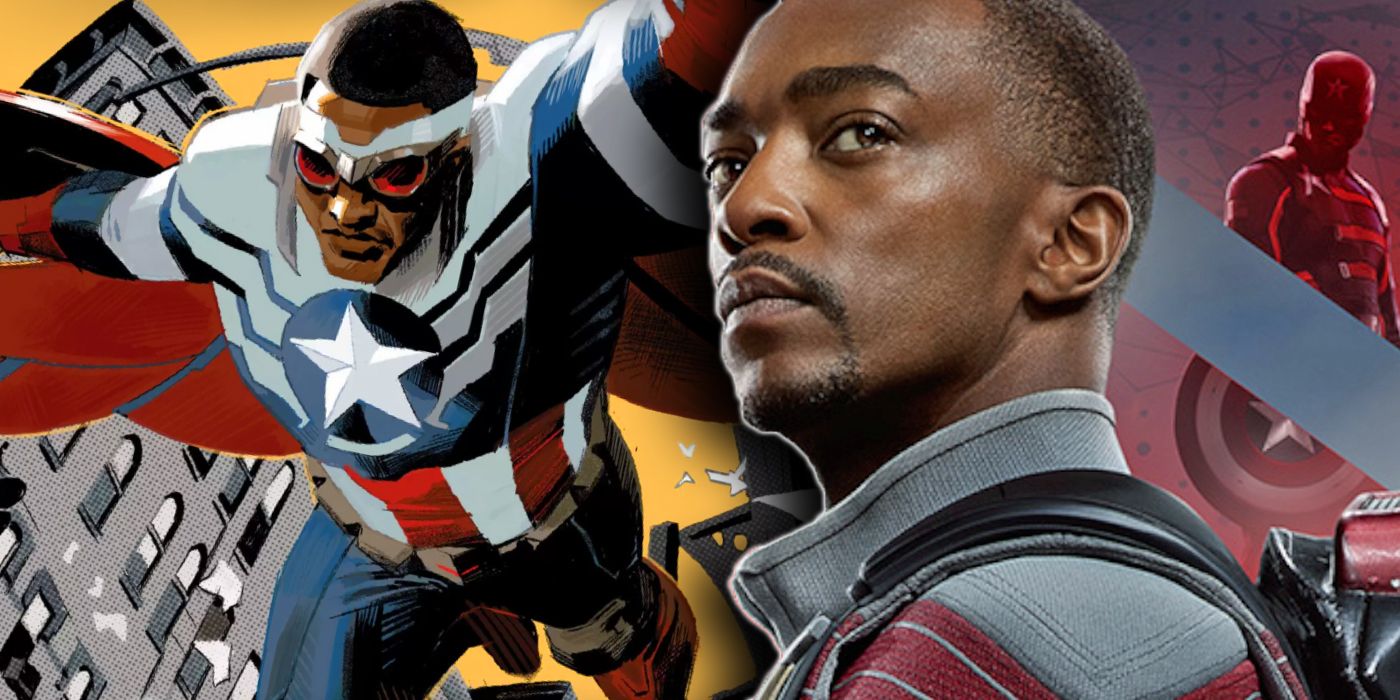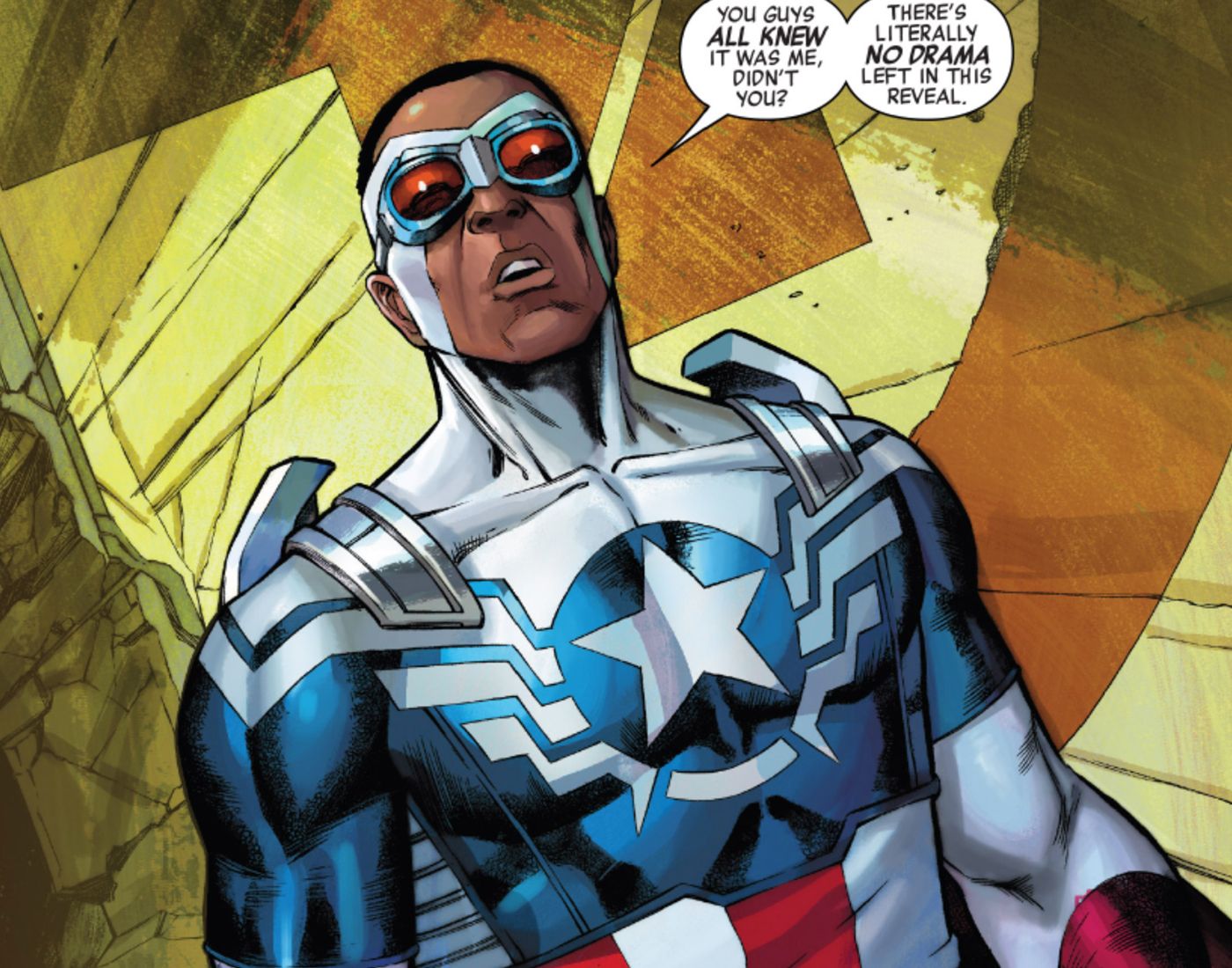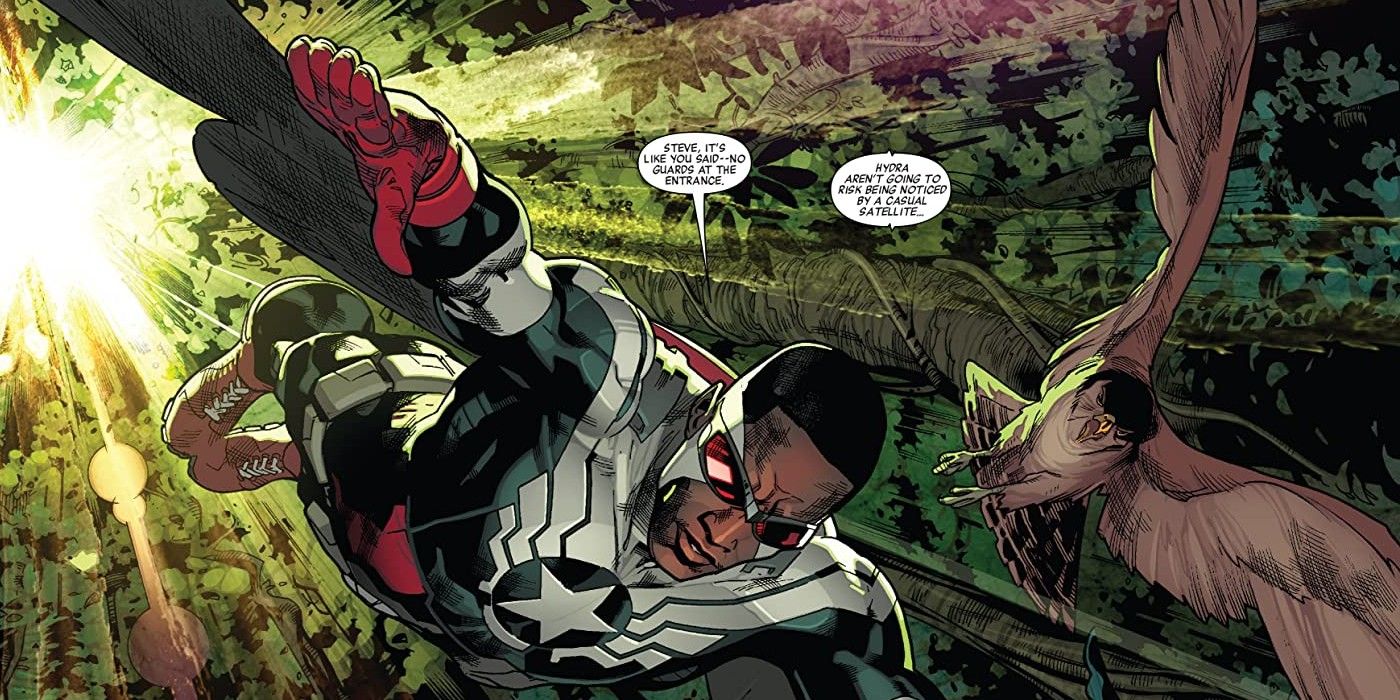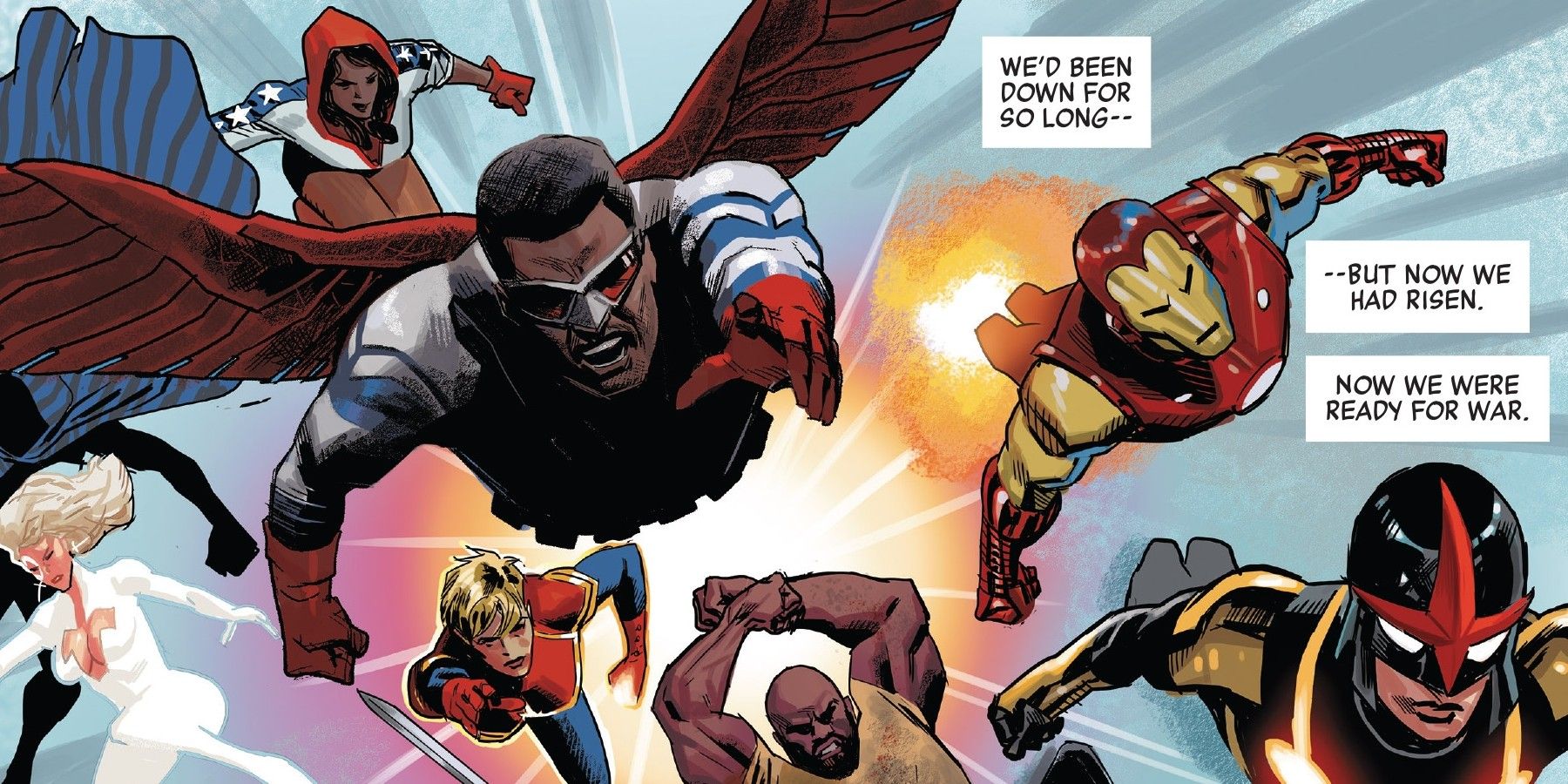WARNING: The following contains fleeting spoilers for The Falcon and the Winter Soldier Episode 6, now streaming on Disney+.
Ever since Steve Rogers passed his shield down to Sam Wilson in Avengers: Endgame, it was only a matter of time until the Falcon took flight as Captain America in the Marvel Cinematic Universe. While The Falcon and the Winter Soldier saw Wilson grapple with the shield's legacy before claiming it as his own, his path to becoming Captain America was a different road in the comic book Marvel Universe.
First introduced in Stan Lee and Gene Colan’s Captain America #117, Sam Wilson quickly gained prominence as Steve Rogers’ close friend and comrade. After a fateful encounter with the mastermind villain Iron Nail, Steve Rogers was drained of his powers and began aging at a rapid rate. Unfit for active duty, the ailing Rogerus chose Wilson as his replacement shortly thereafter in Rick Remender, Carlos Pacheco, and Stuart Immonen’s Captain America #25 in 2014.
Wilson’s first mission with the shield in Remender and Immonen’s All-New Captain America #1 saw him inherit not only Cap’s duties but his foes too. Having found himself on Hydra’s radar, Wilson was helped by Misty Knight who informed him of Hydra’s recent escapades involving the infiltration of various hero groups. While attempting to prevent the release of a sterilizing bioweapon, Wilson uncovered a plan to discredit him involving false information and racial stereotypes. Although neither scheme came to fruition, the encounter foreshadowed the major issues set to plague his time in the role.
In Nick Spencer and Daniel Acuña’s Captain America: Sam Wilson #1, Wilson parted ways with S.H.I.E.L.D. and the government. Fearing the country to be more divided than ever, his decision to engage in politics to activate change was criticized by those who believed Captain America’s accessibility relied on him remaining impartial. While some supported his social activism, those opposed branded him as politically divisive figure. Ultimately, Wilson’s desire to protect and better his country was continually superseded by those who deemed him unworthy of doing so.
Later, in the Avengers: Standoff! event, Wilson was forced to publicly refute S.H.I.E.L.D.’s intention to create a Cosmic Cube. The project, known as ‘Kobik’, was completed in secret and later used to return Steve Rogers to his prime. With his youth and powers restored he acted alongside Wilson as Captain America, but an uproar fueled by political differences and racial discrimination – running themes for Wilson on both page and screen – called for the shield to be returned to Rogers.
Following this, Wilson was attacked by U.S. Agent in a plot partly composed by Steve Rogers himself – or rather, what was discovered to be an alternate version of Steve Rogers wholly loyal to Hydra. Unaware of this, Wilson and the new Falcon (Joaquín Torres) busied themselves with proving the innocence of the wrongly convicted vigilante, Rage. Despite their efforts, Rage was imprisoned and later beaten to within an inch of his life. This failure, combined with a string of recent events, culminated in Wilson reconsidering his career as Captain America.
However, his tenure didn’t completely end there as he later rejoined the fight in Secret Empire in which Hydra, under sleeper agent Rogers, took over the country. Seeking to inspire an uprising, Wilson picked up the shield once more as Captain America
When the real Steve Rogers returned, Wilson resigned his position to help his friend regain the public’s trust following Hydra’s tarnishing of his reputation. This selfless act is rather in keeping with Wilson’s character as what he lacks in superpowers he makes up for in heart. Ultimately, his conduct while in the role and means by which he gave it up merely serve as a testament to his worthiness of the mantle.




